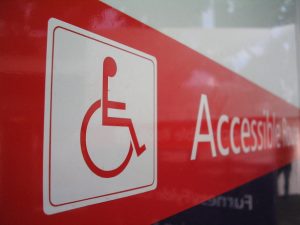A U.S. appeals court issued a ruling recently that rejected a disabled worker’s rights under the Americans with Disabilities Act. It’s the latest court ruling to undermine the rights and protections under federal law that are afforded to employees with disabilities who have been forced to apply for financial assistance from the federal government.
In Pena v. Honeywell International, Inc., No. 18-1164 (1st Cir. April 26, 2019), the First Circuit court ruled a Honeywell machine operator who claimed total disability on her Social Security Disability Insurance application failed to show she qualified for protection under the Americans with Disabilities Act 42 U.S. Code § 12101. The First Circuit hears appealed cases from Maine, New Hampshire, Massachusetts, Rhode Island and Connecticut.
The court ruled plaintiff failed to meet her burden of proof in showing that she was disabled under the American with Disabilities Act. The appeals court affirmed a district court’s summary judgment in favor of Honeywell, ruling that plaintiff’s insistence she was “totally disabled” did not support her ADA claim, for which she needed to prove she was capable of doing her job, with or without special accommodations.
Experienced Boston work injury lawyers know there are important and essential differences between protections offered by SSDI and those afforded under the ADA. As the U.S. Supreme Court has pointed out, the definition for SSDI “does not take the possibility of ‘reasonable accommodation’ into account,” as the ADA does. In the 1999 cases of Cleveland v. Policy Management Systems Corp., U.S. Supreme Court #97-1008, the Supreme Court ruled an employee who is receiving SSDI benefits can still sue an employer for violating rights under the ADA for refusing to make adequate accommodations under the law.
In that case, Supreme Court Justice Stephen Breyer wrote judicial estoppel does not automatically apply to an SSDI claimant who pursues a claim under ADA. Judicial estoppel precludes a party from taking a legal position that is contrary to a previous position maintained at an earlier judicial proceeding. However, the court ruled the burden rests with the plaintiff to prove a disability claim under SSDI is not inconsistent with the special accommodations afforded under the ADA.
Continue reading
 Massachusetts Social Security Disability Lawyers Blog
Massachusetts Social Security Disability Lawyers Blog











